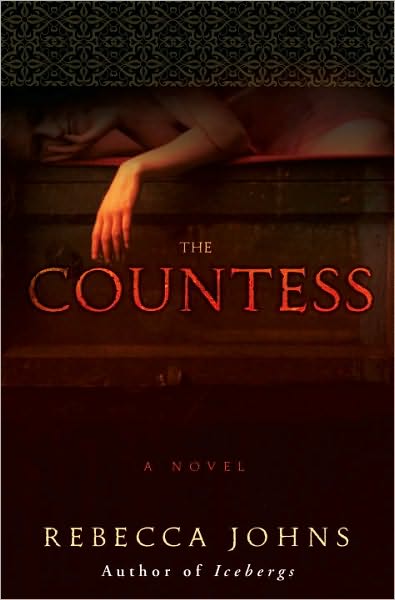
This should have been an awesomely gruesome and creepy book. In The Countess, Johns tells the story of Elizabeth Bathory, aka the Blood Countess. Reportedly, she killed hundreds of young women that worked for her and she bathed in their blood to remain young and beautiful.
Seriously. This should have been super duper awesomely creepy!
And it wasn't. Totally wasn't. In fact, it was kind of boring. That this is my reaction is partially my fault. After all, when you pick up a book about one of the most notorious serial killers in history, you have certain expectations. This book did not meet my expectations.
Johns decided to write the story from Bathory's perspective. In the book, Bathory is writing to her son about what "really happened". She starts describing the day when the bricklayer and his son came to wall her up in her prison. Elizabeth Bathory was pretty much entombed alive in one of her castles. Not exactly a noble end to a member of one of the most powerful families in Hungary at the time. She also married into another powerful family. The story does go that she earned her husband affection after disciplining an unruly servant girl. He, too, seems like quite a piece of work. That said, it wasn't unusual for servants to get this type of treatment back in the 16th century. Still, Elizabeth Bathory probably took it to an extreme.
Did it play into some people's hands that she turned out to have gone completely nuts and beaten and starved so many of the girls in her service? Yes, it did. After her husband's death, Bathory controlled plenty of wealth and holdings. I'm sure several powerful men, including the king of Hungary, had to have their eyes set on her properties. That they did not order her execution is a testament to her power and standing.
For me, this book held my interest in the beginning, where the reader sees Bathory's father punish a gypsy that sold his daughters to the Turks in quite a gruesome way. After that, it told a similar stories to others I've read. Like Catherine d'Medici and others that entered arranged marriages, she has to struggle to make her marriage work. It picked up towards then end, when other start questioning Bathory's actions. For most of the book, she talks about disciplining her servants as a chore. It is chilling, but her focus really lies in other things so we don't get a good idea of how many women she may have killed. I suppose that's part of her psychosis. She doesn't really think about what she's done because she doesn't think it matters.
It was probably a very realistic portrayal. Much more so than most vampire novels out there. Johns did a great job. I think it just the book just wasn't for me. Which, you know, is fine. I don't regret reading it, so I guess that's something.
Next up: The Tiger's Wife, by Tea Obreht.
No comments:
Post a Comment
Note: Only a member of this blog may post a comment.